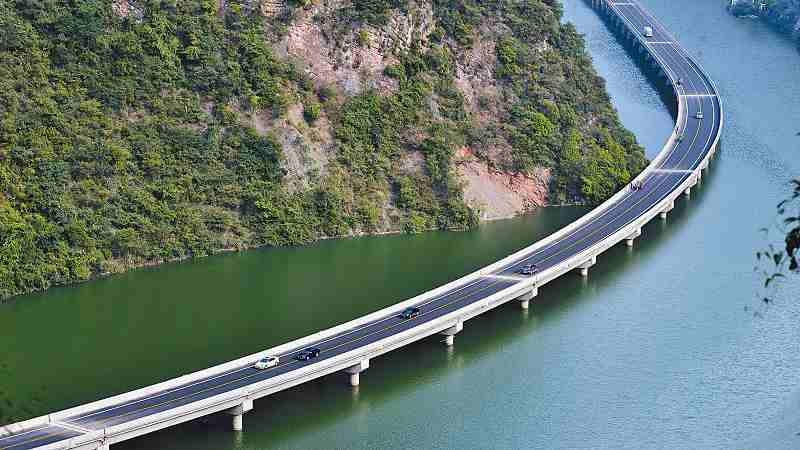Editor's note: Liu Changyu is a researcher at the China Center for International Knowledge on Development (CIKD) with a special interest in environmental governance. Long Haibo is the director of the research organization division at CIKD and a research fellow at the Development Research Center of the State Council, P. R. China. The article reflects the authors' opinions and not necessarily the views of CGTN.
The 4th International Salon of the China Center for International Knowledge on Development (CIKD) was held on June 15. Its goal was to keep people's eyes longer on ecosystem protection as put forward by World Environment Day 2021, under the theme of "Local Practice of China's Governance Innovation: River (Lake) Chief System."
To promote international cooperation and exchange in the field of development, the CIKD Salon was launched in the embassies and consulates in China, as well as in multilateral and bilateral agencies and Chinese first-line witnesses and practitioners.
The session was also one of the outputs of the "Case Studies on the Governance of China in the New Era" project to mark the centenary of the Communist Party of China, calling for the international community to promote ecological civilization.
Rivers and lakes are the primary sources of surface water, which is essential to life, production and the ecosystem.
Water serves as an important factor for pushing forward sustainable development. In the United Nations 2030 Sustainable Development Goals, water plays a role in achieving clean drinking water (SDG6), addressing climate change (SDG13), protecting marine resources (SDG14) and other goals.
The need to protect rivers and lakes is urgent in many developing countries. With rapid industrialization, the contradiction between economic development and environmental protection is quite visible. As one of the largest developing countries in the world, China has paid great attention to environmental issues.

The "river chiefs" have improved Yichang's water resources. /Sichuan Daily
The "river chiefs" have improved Yichang's water resources. /Sichuan Daily
Upholding Chinese President Xi Jinping's thoughts on ecological civilization, the River Chief System was explored by Jiangsu Province and launched nationwide in 2017. Government leaders are appointed as river chiefs, responsible for cleaning up the polluted waterways and restoring the ecological environment.
This institutional approach contributed to overcoming the longstanding problem of departments functioning in different parts of river or lake governance and no one paying for the negative externalities of water pollution. Multi-dimensional assessments and incentives for river chief officials guarantee the effectiveness of water governance in the long term, setting a direction for green development.
The practical exploration serves as a window to encourage the innovative development of water governance systems and mechanisms tailored to local conditions. To tackle water governance matters in transboundary areas, local authorities explored cross-regional cooperation in the form of joint river chiefs and work together in river patrol, cleaning, monitoring, law enforcement and actions.
Nowadays, civilians have a more obvious role to play in China's water governance. Public signs and hotlines allow the public to report river issues directly and accurately. The "civilian river chief," who are residents or entrepreneurs assigned by local governments, is also an interesting exploration to strengthen the non-governmental forces.
Looking into the successful exploration of the River Chief System, the internal logic of China's state governance can be seen. It is a system with Chinese characteristics, with a shared future for humankind.
(If you want to contribute and have specific expertise, please contact us at opinions@cgtn.com.)

